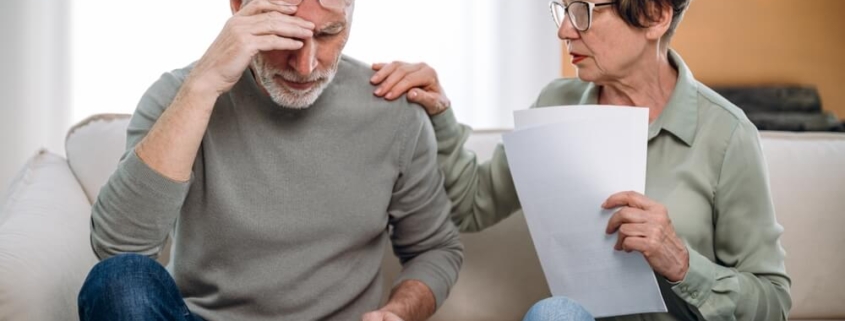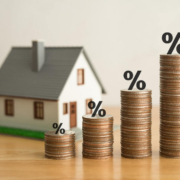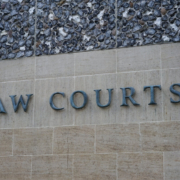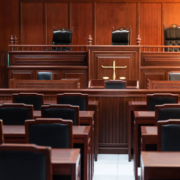What are the Tenants’ and Landlords’ Rights Regarding Unpaid Rent During COVID-19?
The coronavirus outbreak and the resulting shutdown of numerous nonessential businesses has created a crisis situation for many individuals and business owners in California and throughout the country. With the lockdown having gone on for several weeks with seemingly no end in sight, many are having trouble paying for basic necessities like their rent and utilities.
California has imposed a two-month moratorium on evictions for residential tenants who cannot pay their rent because of COVID-19. Currently, this delay runs through the end of May. and Tenants have to pay the past-due rent payments later. Evictions mayresume in June if more government action is not taken, but for now, residential tenants can take some solace in the fact that they cannot be thrown out of their homes for at least the next two months.
For California businesses that are having trouble paying rent, the situation is a lot less clear. The governor’s statewide moratorium on rent evictions does not apply to commercial leases, but there several local municipalities that have enacted commercial eviction prohibitions.
For example, the City of San Diego has prohibited evictions of commercial tenants that are struggling to pay their rent due to a decrease in income caused by COVID-19.However, commercial tenants are required to put their landlords on notice that they cannot pay rent due to COVID-19, and must also provide their landlord with documentation supporting the decreased income. Commercial tenants have to pay the past-due rent payments later, within 6 months of March 25, 2020. The County of San Diego and Cities of Chula Vista, Oceanside and La Mesa have passed similar regulations. .
If you wish to take advantage of these legal protections from eviction, it is important to follow all of the right steps in communicating with your landlord. Otherwise, you may lose your right to the protection afforded by these new COVID-19 regulations. Also, it is important to understand the specific law that applies to you and your tenancy, as these regulations differ according to location. Garmo & Garmo is ready and available to analyze your specific situation and can provide you with guidance during this difficult time.
How Should I Deal with my Landlord if I am Not Legally Protected from Eviction?
There are a lot of Southern California businesses that will not be able to look to a government-imposed eviction prohibition to protect them while the coronavirus pandemic keeps them shut down. Bars, restaurants, and other businesses where larger crowds tend to gather are among those most affected by this situation, and it may not be clear to them what is the best course of action to survive.
One of the first things to do is to take a look at your commercial lease. Review the wording carefully or have your attorney review it to identify any clauses that might relieve you of your obligation to pay rent right now. Whether your lease has an “out” clause that applies to this situation or not depends on the specific language in the contract, but unfortunately, many businesses are going to find that no such language exists. Still, it never hurts to have the contract reviewed.
If your commercial lease offers no avenue to get you out of paying rent, then you will need to try to work something out with your landlord, or have your attorney contact them to work out a solution. In dealing with your landlord, it is important to bear in mind that they and virtually everyone else in the world understand that this is an unprecedented situation.
Your landlord knows that you are out of business and that you are going to have trouble coming up with rent, and they also know that it will probably cost them a lot more to evict you from the building and try to lease it to a new tenant. If you have been a good tenant up until this point, then they want you to stay, and they will want to do everything within reason to keep you there.
It is important to note that you need to be careful how you approach your landlord and how you discuss the situation. For example, you probably do not want to tell them outright that you will not be paying your rent as this could be seen as a “threatened breach” of your contract, which could trigger a default. This is why it is usually best to have your attorney do the talking, even if you have a good relationship with your landlord.
What if I Have Already Received a Default Notice from my Landlord?
If you have received a notice from your landlord indicating that you are in default of your lease, get in contact with an experienced business attorney immediately. You normally have a certain amount of time before a lease is officially terminated and the eviction process begins, so any action to stop this process from going forward must be taken before the clock runs out. Any type of default notice is very serious, and it must be addressed right away. You cannot necessarily count on the shutdown created by the COVID-19 crisis to get you out of it.
We are Here for You
Everyone’s life has been disrupted by the coronavirus pandemic, and we will all get through this together. If you have any type of legal issue that has arisen because of COVID-19, we at Garmo & Garmo are here to help. Like everyone else, we are taking all of the precautions and following the social distancing guidelines laid out by the state and federal government, but we are still operating at full speed, and we are ready to help individuals and businesses in whatever way we can to get you through this difficult time.
Message us online or call our office today at (619) 441-2500 to schedule a free consultation.












